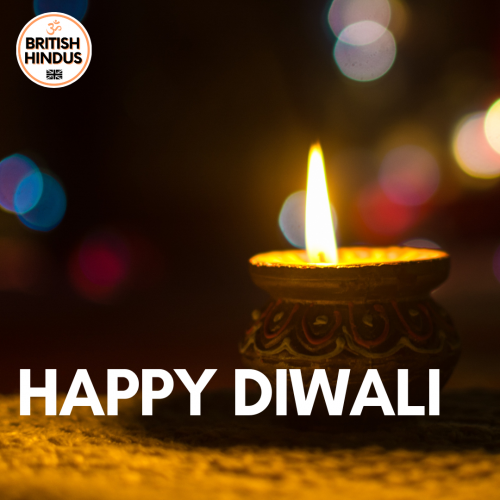From all of us at British Hindus, we wish you and your family a happy and prosperous Diwali! To celebrate, we are sharing with you the 7 themes that are central to Diwali.
Acknowledging our mortality
Throughout the festival there are many rituals to honour Yama (Deva of death)
and the Pitrus (ancestors). Through these observances, Hindus acknowledge the
temporary nature of life, the inevitability of death, and also of Moksha
(enlightenment); the ultimate goal in life. Yama is the Deva responsible for
judging karmas (actions) of all beings, and hence his association with Diwali
reinforces our commitment to live a virtuous life.
Health and Vitality
Diwali is sacred to Dhanvantri, the Deva of Ayurveda; the Hindu system of
holistic health and healing. Several traditions during this period reinforce
the importance of maintaining healthy surroundings, mind, and body. Ahead
of the festival, houses are deep cleaned, repaired, and de-cluttered.
The ritual of ‘abhyang snan’, involves massaging and bathing with
sandalwood, sesame oil, and herbs that rejuvenate the skin.
Wealth and Abundance
At Diwali, puja is offered to Lakshmi and Kubera; deities associated with prosperity. Hinduism encourages wealth creation, but not as an end in itself as this leads to greed, so in addition to seeking financial growth, Diwali is also a time to express gratitude to Lakshmi. The same sentiment of gratitude is seen in the offering of Annakut (mountain of food) during Govardhan Puja.
Spiritual Transformation
The dark nights of Amavasya (new moon) are ideal for turning inwards. Falling on Amavasya, Diwali night is considered one of the most powerful for cultivating personal spiritual growth. In addition to worshipping Lakshmi, the Devi of fortune, many Hindus invoke Kali, the destroyer of time and death. This night also marks the end of Kedara Gauri Vratam, a 21 day vrata which Parvati observed to merge herself with Shiva.
Sustaining Dharma
During Diwali, two of Vishnu’s incarnations remind Hindus of their duty to protect Dharma. Krishna defeats Narakasura who had been holding 1,000s of young women hostage, reiterating the importance of standing up to those who oppress and exploit the vulnerable. The festival also celebrates the coming home of Sita and Rama after 14 years in exile. Sita and Rama are role models in resilience, humility, service, truthfulness, compassion, and bravery.
Gratitude to all Beings
Along with the Devas and Pitrus, Diwali is also a time when Hindus honour crows, dogs and cattle, animals sacred to Yama, Bhairava, and Lakshmi. Hindus venerate these animals to acknowledge that divinity is present in all lifeforms and that humans are not apart from nature. Cattle and dogs in particular have remained important domestic animals in Hindu civilisation so are offered gratitude during this festival.
Strengthening Relationships
At Diwali, family members unite and renew commitments to their Kuladevas (family deities), pitrus (ancestors), and each other. Sweets are exchanged to symbolise the spreading of good will, and efforts are made to resolve interpersonal conflict. Public pujas, feasts and cultural events are organised to strengthen community ties.

